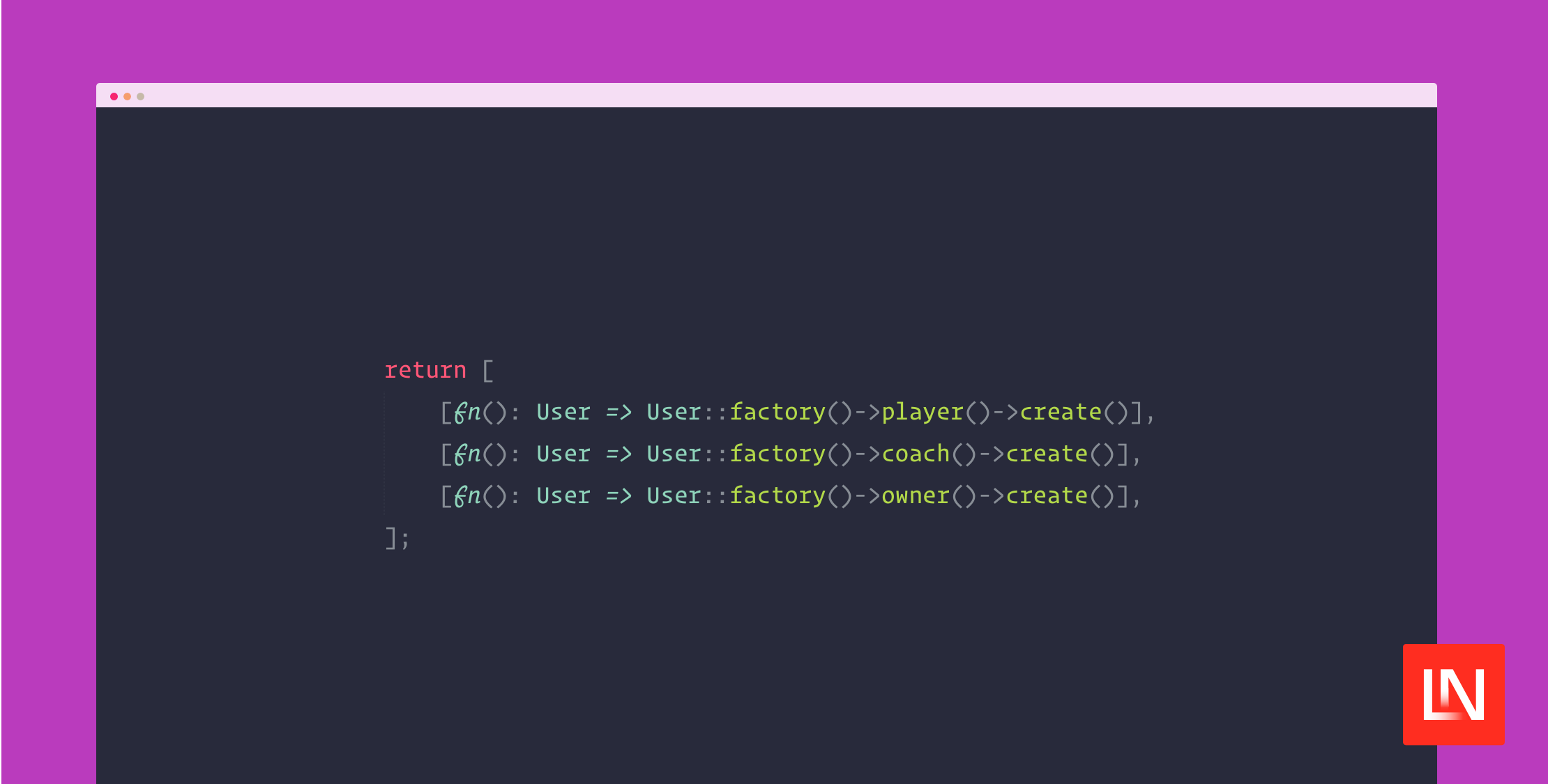There are a few ways to work with Laravel's factories in feature tests, such as creating a model during setUp() when you want to use it for multiple tests or directly in an individual test case. If you have a test case that you want to test against a variety of data, you might want to reach for PHPUnit's data providers with Eloquent models.
Using data providers with feature tests can pose a problem because they run before Laravel is bootstrapped via the framework's TestCase that runs during setUp(). Data providers are resolved early in the process of running phpunit, so you'll run into the following error if you want to use them:
<?php namespace Tests\Feature; use App\Models\User;use Illuminate\Foundation\Testing\RefreshDatabase;use PHPUnit\Framework\Attributes\DataProvider;use Tests\TestCase; class ExampleTest extends TestCase{ use RefreshDatabase; #[DataProvider('nonAdminUsers')] public function test_non_admin_users_cannot_access_admin($user): void { $response = $this ->actingAs($user()) ->get('/admin') ->assertStatus(403); } public static function nonAdminUsers(): array { return [ [User::factory()->player()->create()], [User::factory()->coach()->create()], [User::factory()->owner()->create()], ]; }}If you run the above test, you should get something like the following error, depending on which version of Laravel you are using—the following is what I get on Laravel 11:
$ vendor/bin/phpunit tests/Feature/ExampleTest.php There was 1 PHPUnit error: 1) Tests\Feature\ExampleTest::test_non_admin_users_cannot_access_adminThe data provider specified for Tests\Feature\ExampleTest::test_non_admin_users_cannot_access_admin is invalidA facade root has not been set. tests/Feature/ExampleTest.php:18This is because when the data provider code runs, the Laravel app hasn't been bootstrapped! If you're a Pest PHP user, the Bound Datasets example illustrates using a closure for model data:
it('can generate the full name of a user', function (User $user) { expect($user->full_name)->toBe("{$user->first_name} {$user->last_name}");})->with([ fn() => User::factory()->create(['first_name' => 'Nuno', 'last_name' => 'Maduro']), fn() => User::factory()->create(['first_name' => 'Luke', 'last_name' => 'Downing']), fn() => User::factory()->create(['first_name' => 'Freek', 'last_name' => 'Van Der Herten']),]);In PHPUnit, we could use closures to pass code to our test via data providers without immediately trying to create the data:
namespace Tests\Feature; use App\Models\User;use Illuminate\Foundation\Testing\RefreshDatabase;use PHPUnit\Framework\Attributes\DataProvider;use Tests\TestCase; class ExampleTest extends TestCase{ use RefreshDatabase; #[DataProvider('nonAdminUsers')] public function test_non_admin_users_cannot_access_admin($user): void { $response = $this ->actingAs($user()) ->get('/admin') ->assertStatus(403); } public static function nonAdminUsers(): array { return [ [fn(): User => User::factory()->player()->create()], [fn(): User => User::factory()->coach()->create()], [fn(): User => User::factory()->owner()->create()], ]; }}Note the $user() call, which we pass to actingAs(). If you need to use the model in various places, just assign it to a variable. Now, factory data is created in the test, which is precisely what we want! To learn more about HTTP feature tests in Laravel, check out the documentation.











